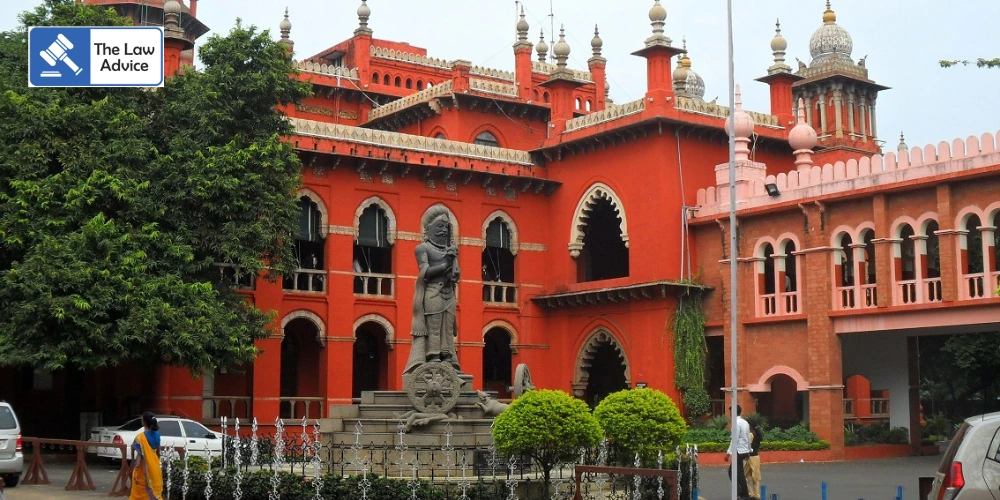The Madras High Court on Monday, August 18, 2025, dismissed an application seeking an interim injunction to restrain actor Vijay’s political party, Tamilaga Vetrri Kazhagam (TVK), from using its party flag, in a dispute alleging trademark and copyright infringement by a registered Trust.
Justice Senthilkumar Ramamoorthy heard the matter and rejected the claims of the plaintiff, while clarifying that the observations were tentative and that the merits of the case would be examined in detail when the matter is listed again in September.
The petition was filed by G.B. Pachaiyappan, trustee of the Thondai Mandala Saandror Dharma Paribalana Sabai, who contended that the TVK party’s flag was deceptively similar to the Trust’s registered trademark. The plaintiff alleged that by adopting a yellow and red colour combination with three stripes, the party’s flag had imitated the Trust’s distinctive mark, causing public confusion and deception, and thus amounting to trademark infringement, copyright violation, and passing off.
The plaintiff emphasized that the Trust had registered its mark in November 2023 and had been using it consistently since then. The argument highlighted that both the Trust and the political party were engaged in similar activities, which could increase the likelihood of public confusion. When questioned by the Court whether the colour scheme itself was registered, the plaintiff relied on provisions of the new Trademark Act, which presume that a colour registration includes the colour scheme as part of the trademark.
The plaintiff also argued that the flag qualifies as an “artistic work” and thus merits protection under copyright law.
Senior Advocate Vijay Narayan, appearing for the TVK party, countered that neither the plaintiff nor the party was engaged in any trade or commerce, and therefore, no relief could be claimed under the Trademark Act. Narayan acknowledged similarities in the colour scheme but submitted that the overall look, style, and elements of the two flags were entirely different, making confusion unlikely. He also highlighted that the plaintiff had not demonstrated any loss suffered or any unjust enrichment on part of the party.
On the question of copyright infringement, the Court accepted that the plaintiff’s flag could be considered an artistic work, but noted that to succeed, it was necessary to show substantial copying. The Court observed that while the two flags shared the red-yellow-red colour combination, the central devices were markedly different:
• The plaintiff’s flag contained a circle with a fish on the left, a leaping tiger on the right, a bow and arrow at the top, and the words “Valarga Thalamurai” beneath the figures.
• The TVK party’s flag featured an oval device with elephants in motion on either side.
The Court concluded that the TVK flag did not constitute a substantial copy of the plaintiff’s design and therefore rejected the copyright claim.
Regarding trademark infringement, the Court observed that the term “trade” was not defined in the Act and refrained from making any definitive findings at this interlocutory stage. Even assuming the plaintiff’s mark was entitled to protection, the Court noted that the colour scheme alone could not be considered an essential feature likely to cause public confusion.
On the issue of passing off, the Court noted that the plaintiff failed to establish the classical trinity of goodwill, misrepresentation, and damage, and therefore, the claim could not succeed at this stage.
Considering all factors, the Court denied the application for an interim injunction and adjourned the matter for further hearing on September 22, 2025.
The case is formally cited as: GB Pachaiyappan and Another v. Tamilaga Vettri Kazhagam and Another.
This ruling underscores the judiciary’s careful approach in balancing intellectual property rights with political and public interests, especially when the matter involves symbols, flags, and artistic works associated with political entities.
